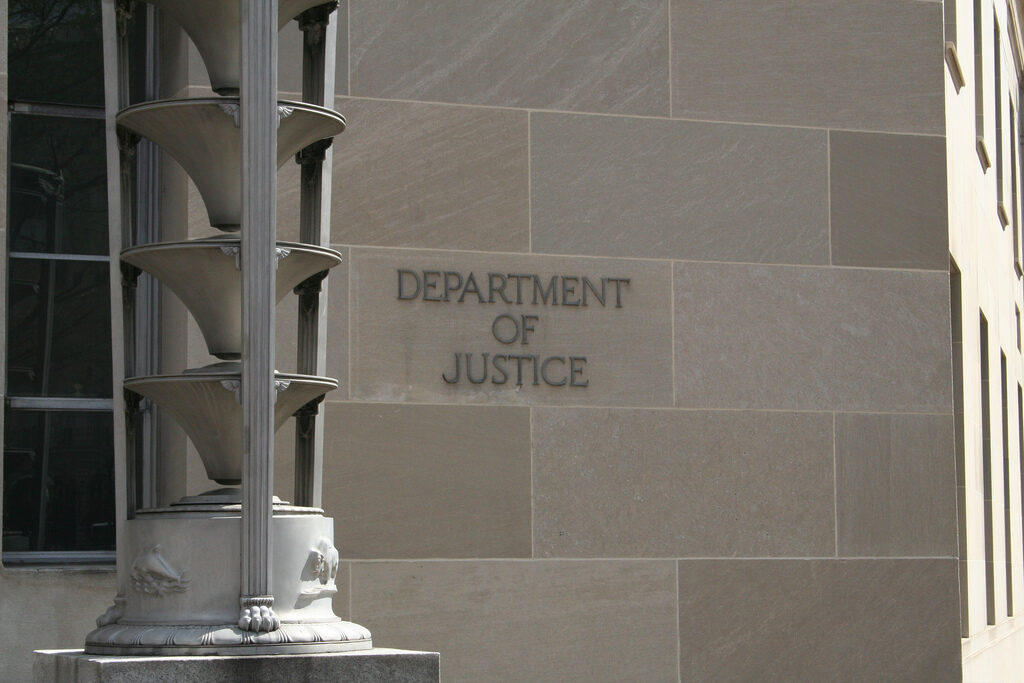Scott Lemieux (most famously of Lawyers, Guns and Money) has an excellent piece on the Supreme Court in The New Republic. The article is equal parts a review of the Court in the Obama years and a look forward to what comes next. Both elements are well done and interesting, and there are several areas rich for discussion.
One that I’d like to talk about is the prospects for the Court avoiding the kind of poisonous polarization that has taken over Congress. I think Lemieux’s take on this is worth considering.
Could anything stop the Court from becoming as polarized as the rest of the political order? If current party polarization persists, probably not. But it’s not certain that it will. Tom Keck, a political scientist at Syracuse University and the author of an excellent recent book analyzing the Supreme Court in the context of contemporary partisan politics, told me that if the Democrats finally take control of the Court, the Court could become “ever more polarized, with Roberts, Alito, and Thomas serving as a perpetually dissenting GOP wing.” But it’s also possible that “the 2016 election marks a significant realignment of the party system, such that our current patterns of polarization get displaced. If/when this happens, internal divisions within each party (and within each party’s judicial wing) may be brought to the fore, such that voting alignments on the Court again start to fall on lines other than partisanship.”
In other words, if the Republican Party reacts to a likely Trump defeat at the polls by continuing its relentless march to the right, the polarization of Court is essentially inevitable. But if the current alignment proves unsustainable, all bets are off. My guess is that Trump will not cause a fundamental realignment, because a Republican Party that’s uncompetitive in presidential elections can still compete at state levels and in congressional elections where various structural factors favor conservatives. But this is ultimately a guess, and demographic changes will probably cause some partisan realignments down the road.
I’d like to offer two thoughts in response.
The first is that the Republicans spent most of the time in the Congressional minority between 1933 and 1994, and, as a result, they really didn’t have a lot invested in the postwar federal government edifice we built up to both wage the Cold War and to fight poverty and protect civil rights. They had so little say in the details of this architecture that they developed a permanent minority mentality. It makes it hard for them to take responsibility for funding and overseeing our federal agencies and it means that they’re actually quite comfortable (most likely, more comfortable) being in the congressional minority. They can tolerate a lack of power in Congress.
But that’s not to say that they can tolerate being shut out of the White House, too. While they were stuck having little say on federal appropriations for most of sixty years in the mid-to-late 20th Century, they also enjoyed two terms each with Eisenhower, Nixon/Ford, and Reagan in the White House. They had at least a little congressional power during Eisenhower’s presidency (the first two years) and they owned the Senate for the first six years of Reagan’s presidency. They also had a term with Poppy Bush in that time period.
The situation now is nearly reversed. They seem locked out of the White House but they’re ensconced in Congress, particularly in the House. The Democrats may occasionally seize control of one or both houses of Congress, but it’s doubtful that they can sustain majorities for any period of time.
So, really, the Republican Party (if not necessarily conservative Republicans) needs to evolve to reflect their ownership of Congress. Obviously, they don’t have to do this, but our government cannot work with an anti-Federal power Congress working with an endless stream of Democratic presidents.
The second thought I have is that a bad Trump loss does have the potential to accelerate this process. Conservatives are already losing the ability to define what conservatism means. Issues like free trade, immigration and gay rights are splintering the movement, and environmental issues have the potential to do the same. If the Republicans can’t sing from the same hymnal, they’ll lose the ability to churn out ideological judges in patently conservative molds. We can already see a lot of daylight between Roberts and Kennedy, on the one hand, and Thomas and Alito on the other.
The future is very uncertain at the moment, but I think the conservative movement is cracking up sufficiently that ten years from now, the clear divides we see on the Court will have become a lot more blurred. And that means that the Court will probably be less polarized.
